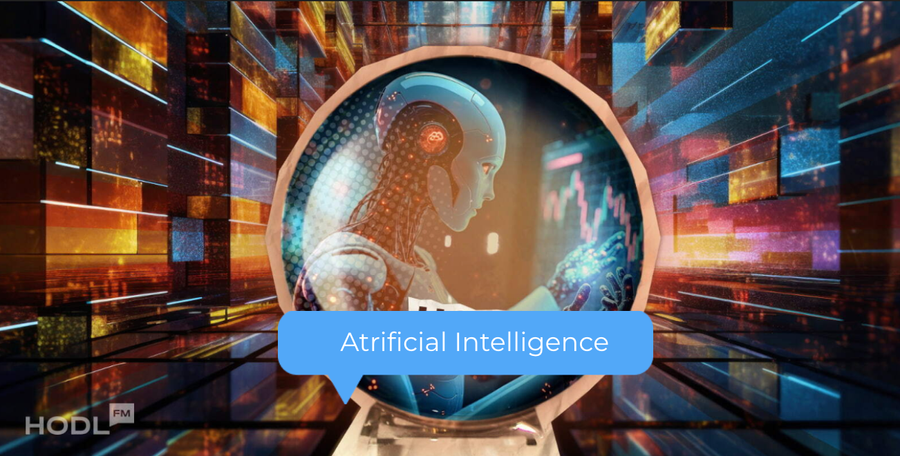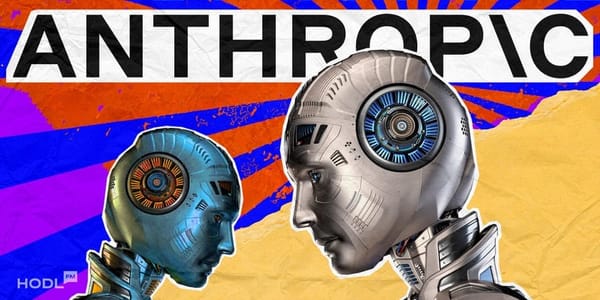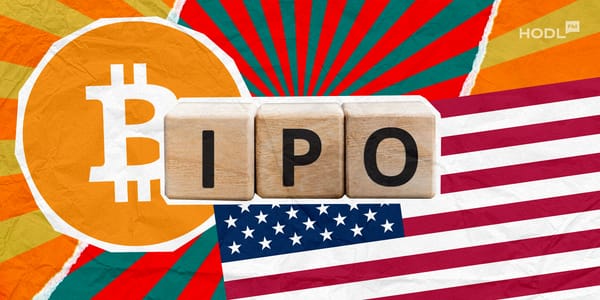Global stock markets suffered sharp declines this week as investors weighed the rapid rise and potential overvaluation of artificial intelligence (AI) companies.
Major AI-linked companies, so called "Magnificent Seven" including Nvidia, Microsoft, Amazon, Apple, Alphabet, Tesla, and Meta, all saw declines.
Palantir, despite raising its revenue outlook, slumped nearly 8%, partly influenced by short positions taken by investor Michael Burry, famed for predicting the 2008 housing crisis.

A growing chorus of concern
Yet as AI’s expansion charges ahead, the mood in financial circles is beginning to shift. Echoes of past bubbles are no longer just historical comparisons, they’re creeping into the present narrative.
Bank CEOs, including those of Morgan Stanley and Goldman Sachs, have cautioned that markets could face a correction within the next one to two years.
Deutsche Bank analyst Jim Reid noted a “Whilst the moves were only one day’s selloff, the market narrative saw a discernible shift, with a growing chorus discussing whether we might be on the verge of an equity correction.” in market sentiment, with increasing discussion over whether equity valuations, particularly in tech and AI, have become unsustainably high.
Jamie Dimon of JP Morgan Chase also warned in October of potential market turbulence over the next six months to two years.
Asian markets followed suit, with Japan and South Korea registering sharp losses. SoftBank, heavily invested in AI companies like OpenAI and Intel, saw its shares tumble over 10%, weighing heavily on the Nikkei. Semiconductor suppliers, including Taiwan Semiconductor Manufacturing Co (TSMC) and Advantest, dropped as much as 10%, erasing approximately $500 billion from global indexes tracking chip stocks.
“Global equity markets faced a heavy selloff on Tuesday as a cumulation of several factors have led to a rise in uncertainty and risk aversion,” said Daniela Hathorn, senior market analyst at Capital.com.
Signs of a Bubble
Analysts and commentators are increasingly drawing parallels between today’s AI-driven surge and past speculative periods, such as the 2000-2001 tech bubble and the railroad boom of the late 19th century. Both cases saw massive initial investment, followed by overcapacity and significant losses when demand failed to materialize.
Economists warn that a similar correction today could wipe out over $20 trillion in American household wealth and more than $15 trillion for foreign investors, a scale far exceeding the dotcom crash of the early 2000s.

AI has accounted for roughly 85% of the gains in US stocks so far in 2025, with AI companies now representing half of the S&P 500. Stock valuations are high relative to earnings, with the forward price-to-earnings ratio showing investors are betting heavily on future potential rather than current profitability.
Massive investment, circular spending
The frenzy has been fueled by unprecedented investment. Microsoft has invested $13 billion in OpenAI, Amazon $8 billion in Anthropic, and Nvidia over $100 billion into AI partnerships. OpenAI alone is burning roughly $12 billion per quarter while generating $13 billion in revenue.
Projected capital expenditures for AI infrastructure could reach $1.5 trillion by 2028, making the sector’s share of GDP higher than during the dotcom era.
Yet corporate adoption of AI remains limited: research shows 95% of organizations are currently seeing little or no return on their AI investments. Companies like Microsoft have even begun canceling data center leases to curb oversupply, highlighting the disconnect between investment and demand.

Profitability and competition concerns
While AI companies continue to generate revenue, their long-term profitability remains uncertain. The sector is supported by a handful of deep-pocketed firms that can sustain losses for years, but if adoption stalls or competition intensifies, this could trigger a sharp market revaluation.
Analysts warn that the bulk of GDP growth and market gains are concentrated in a small group of companies with interconnected investments, meaning a failure in one could ripple through the sector.
Is it a Bubble?
Much like the dot-com frenzy of the late ’90s, today’s AI boom is awash with investor capital and lofty promises. Then, internet startups raised billions on metrics like website traffic rather than profit potential. Telecom firms raced to build vast fiber networks, only to see demand evaporate, leaving a trail of bankruptcies and fire-sale acquisitions when the bubble burst in 2001.
“There’s a lot of parallels to the internet bubble,” said Bret Taylor, OpenAI’s chairman and CEO of Sierra, a $10 billion AI startup.
“AI will transform the economy and create tremendous value, but we’re also in a bubble, and many will lose a lot of money.”
Industry leaders acknowledge bubble risks but remain optimistic. OpenAI and Anthropic report meaningful productivity gains, and companies are exploring premium pricing for advanced AI services, including potential $2,000 monthly subscriptions. Nvidia CEO Jensen Huang insists the AI sector is “long away” from a crash akin to the 2008 financial crisis.
There are key differences this time. The dominant players, the so-called “Magnificent Seven” U.S. tech firms are well-capitalized giants driving most of the S&P 500’s earnings growth.

Meanwhile, AI adoption continues to explode. OpenAI’s ChatGPT now boasts roughly 700 million weekly users, and both OpenAI and Anthropic report rapid sales expansion.
OpenAI projects revenue to more than triple in 2025 to $12.7 billion. Despite not yet being cash-flow positive, a recent employee share sale valued the company at $500 billion, making it the most valuable firm in history never to turn a profit.

Disclaimer: All materials on this site are for informational purposes only. None of the material should be interpreted as investment advice. Please note that despite the nature of much of the material created and hosted on this website, HODL FM is not a financial reference resource, and the opinions of authors and other contributors are their own and should not be taken as financial advice. If you require advice. HODL FM strongly recommends contacting a qualified industry professional.




